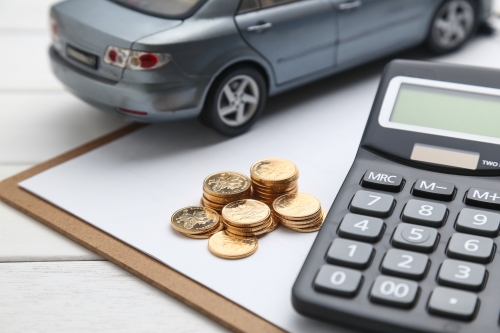Can I claim mileage as a sole trader locum pharmacist?
06 Feb . 4 min read.

This is one the most asked about questions and the short answer is no a locum pharmacist cannot claim mileage as an allowable expense as a sole trader. The reason for this is that a locum pharmacist is choosing to travel as part of their work and therefore cannot expect to be reimbursed for this expense. As a sole trader it is your sole responsibility to get to and from your place of work.
Some locum pharmacists have claimed they fall under the ‘intinerant’ trader. This is not the case. An intinerant trader is a worker who travels from their home to various different locations for a temporary purpose and at each such place they are completing a piece of work with the conclusion of that work they move on to the next job. In the case of Horton v Young (1971) 47 TC 60, Mr Horton carried on business as a bricklayer. He:
• entered into contracts with a main contractor for bricklaying at various building sites within 55 miles from his home.
• worked on each site for three weeks or so
• had no office on the sites
• contracted for work, wrote up his books and kept his tools at home, and travelled to the sites in his car, in which he conveyed the other members of his bricklaying team.
The taxpayer attributed one-third of his travelling expenses to travelling between sites, and the balance to travelling to and from his home. Mr Horton claimed (amongst other matters) a deduction in respect of the expenses of travelling between his home and the sites. He contended that his home was his place of business. The Crown argued that the expenses were not wholly and exclusively for the purposes of Mr Horton’s trade.
The General Commissioners held that the expenses of travelling between Mr Horton’s home and building sites were not an allowable deduction.
The site at which business records (financial, accounting and the like) and ‘tools of the trade’ (clothing, equipment and the like) are kept and maintained does not automatically become the ‘base of operations’. Many self-employed persons keep their business records and some (or all) of the tools of their trade at home.
When considering whether travelling costs are allowable or not you need to establish exactly what is the nature of the taxpayer’s trade, how the business activities are organised and what purpose(s) the journeys to and from home serve. If one of the purposes of the journey is to allow the taxpayer to live away from the place(s) of work then there is inevitable duality of purpose and no deduction is due (see BIM37605). It does not matter that there may also be a business reason for the journey – duality of purpose is fatal to deduction.
The reason why claiming mileage as a expense is important for a locum pharmacist over say an ebay seller working from home would be that the ebay seller would be perfectly fine working as a sole trader as their mileage is very little so forming a company to be able to claim those miles would not be of any great value. Whereas, the average motorist in the united kingdom drove up to 10,000 miles (published by statista research department, 31 jan 2020), the average locum driver did 15,000-18,000 miles per year. This equates to a £5,750-£6,500 in lost expense if locum work was carried out via sole trader.
After extensive discussions with HMRC on this matter they have concluded a locum pharmacist cannot claim mileage via a sole trader. Therefore, it is more tax efficient for a locum pharmacist to trade via a limited company as via a company you are legally entitled to claim mileage as an expense. You can also claim your meals and use of a home office along with opening up payroll for yourself. All of which significantly reduces your tax liability. For further discussion on this matter please call Centra Consultants.
Response from HMRC
“Regarding Locum workers. As they have no strict place of work, and they are free to choose where they work, this is classed as general
commuting to work, and therefore not an allowable business expense”
-taxes technician
Base of Operations
“The cost of travelling from home to place of work is generally disallowed, representing as it does the (private) choice of where to
live and that such is separate from the place of work. It does not matter that the taxpayer may at times work at home or keep their
business records, materials, tools etc at home. Everyone needs a place to live and the journey from their place of residence to place of
work is, at least in part, occasioned by the private choice of where to live. So the journey will have a dual purpose and the cost is not
allowable”
Business Income Manual
“The ‘base of operations’ test derives from Denning LJ’s judgment in the Court of Appeal in Newsom v Robertson [1952] 33 TC 452 (see BIM37605). In a case concerning a milkman, Powell v Jackman [2004] 76 TC 87 (see BIM37635), Lewison J cautioned against applying
this test outside the narrow confines of its utility”
“In the High Court, Danckwerts J said that the expenditure was not allowable because it was incurred for the purpose of allowing the taxpayer to travel between his place of residence and his place of work. It did not matter that the taxpayer carried on his profession in two places: the chambers and his home. At best, the journey served a mixed purpose”
CENTRA CONSULTANTS
3 Hardman St
Manchester
M3 3EB
Tel: 07850 952814
References
https://www.gov.uk/hmrc-internal-manuals/business-income-manual/bim37605
https://www.gov.uk/hmrc-internal-manuals/business-income-manual/bim37635
https://www.gov.uk/hmrc-internal-manuals/business-income-manual/bim37630
https://www.gov.uk/hmrc-internal-manuals/business-income-manual/bim37400
https://www.statista.com/statistics/513456/annual-mileage-of-motorists-in-the-united-kingdom-uk/